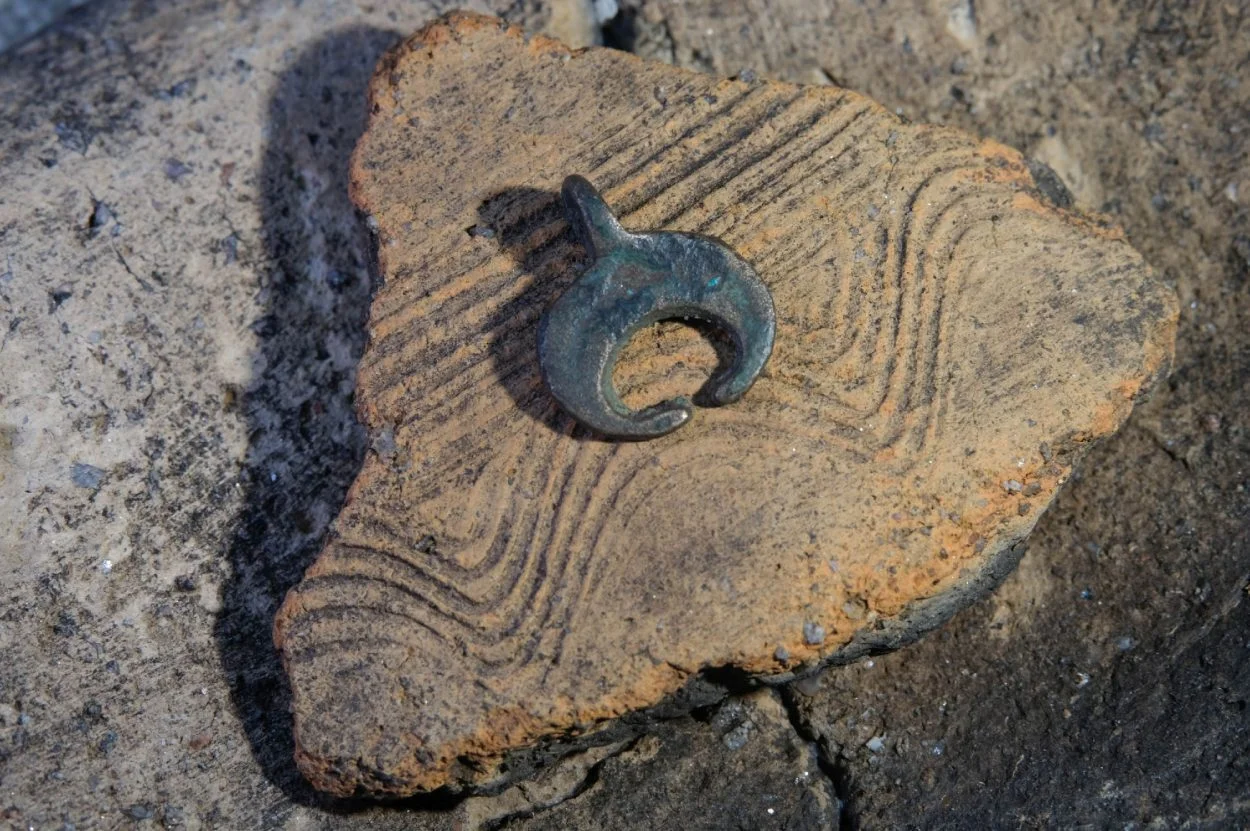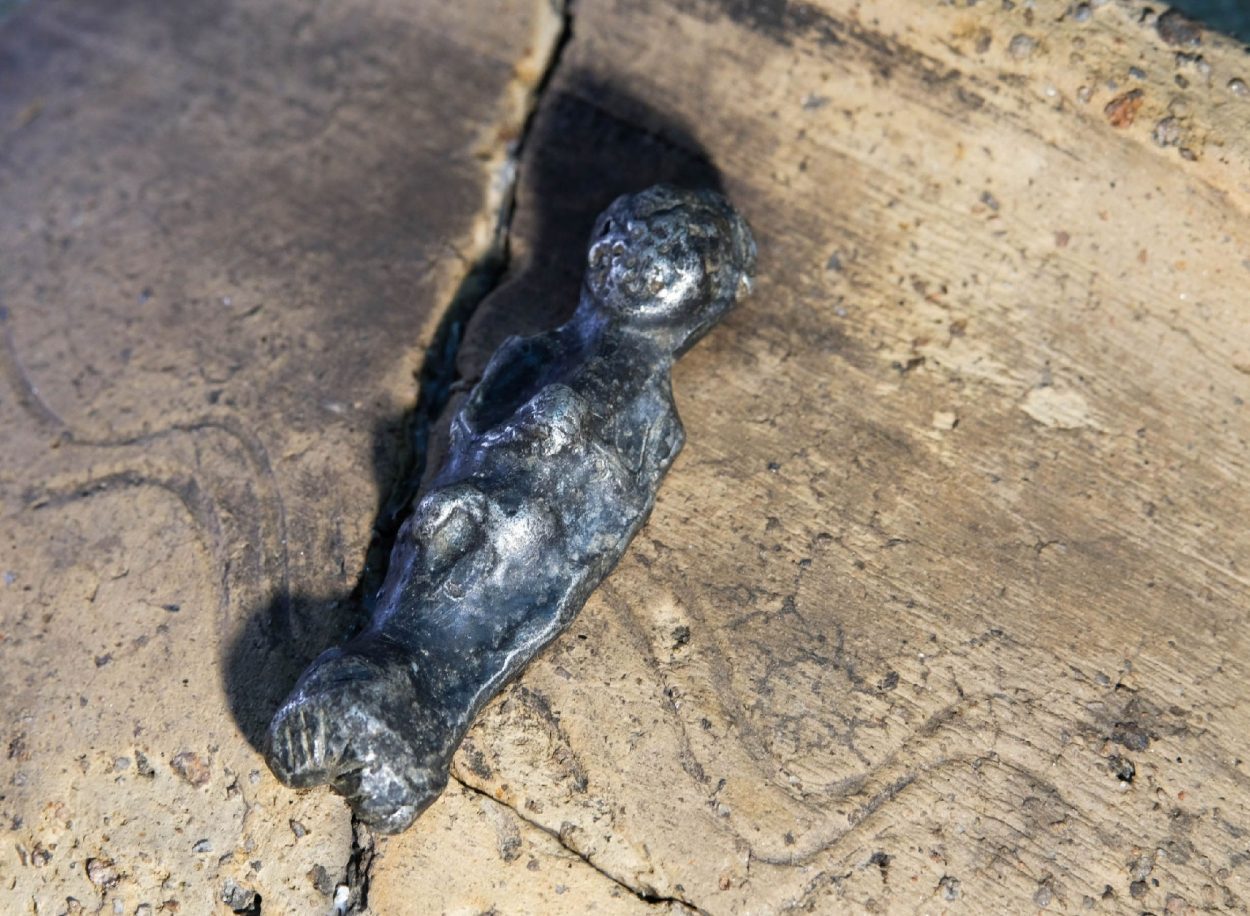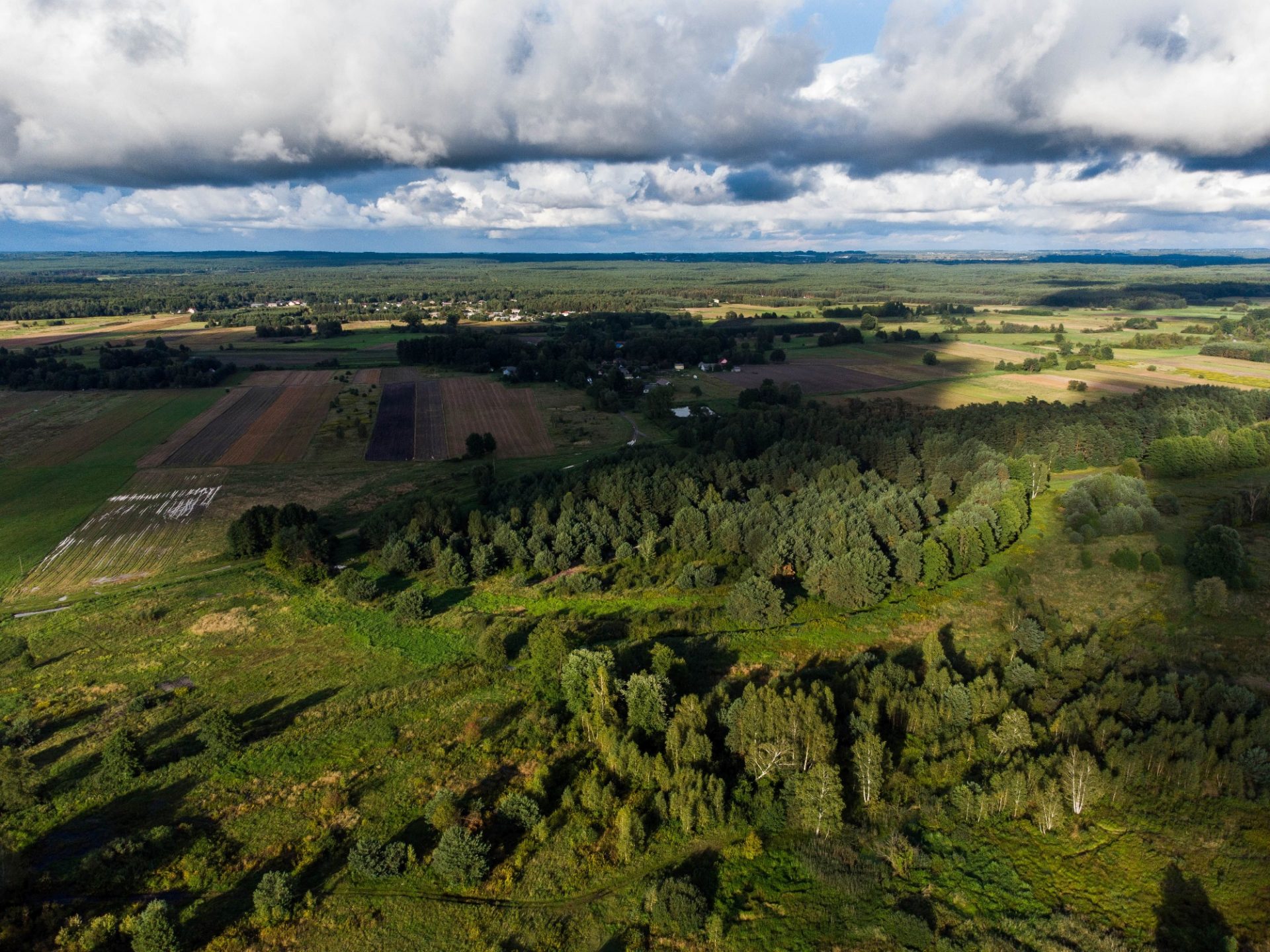Archaeologists excavating a Slavic hillfort in the village of Chodlik, located in the Lublin Voivodeship of Poland, has discovered hundreds of artefacts from the Middle Ages.
The hillfort, known locally as “Szwedzkie Wały”, dates from the 8th to 10th century AD, and was one of the largest tribal centres in the area of historical Lesser Poland.
The stronghold was protected by three ramparts, and occupied an area of 19.7 acres (or between 197.5 to 247 acres including the surrounding cluster of auxiliary settlements and cemeteries adjoined to the south-east).
In 2020 and 2021, archaeologists conducted excavations in an area identified through geophysical studies that revealed several rectangular features.

Dr. Łukasz Miechowicz from the Institute of Archaeology and Ethnology of the Polish Academy of Sciences said: “We wanted to establish whether these were residential buildings in the stronghold, and verify our knowledge about the final stage of the functioning of the site”.
During the excavations, archaeologists discovered hundreds of clay vessels fragments that date from between the 8th-10th century AD, and military artefacts such as arrowheads and spears.
The researchers also unearthed traces of clothing and decorative items, such as a bronze ring clasp, a lunula crescent-shaped pendant, a lead gaming piece, and a silver anthropomorphic figurine.

Describing the figurine, Dr. Miechowicz said that no other examples have been found or documented in publications from archaeological sites from this period in the region.
The hillfort was previously thought to have been abandoned in the 10th century AD, however, the discovery of two early medieval denarii in situ during this seasons excavations has suggested that occupation continued through to the 11th century AD.
Header Image Credit : Dr. Łukasz Miechowicz





